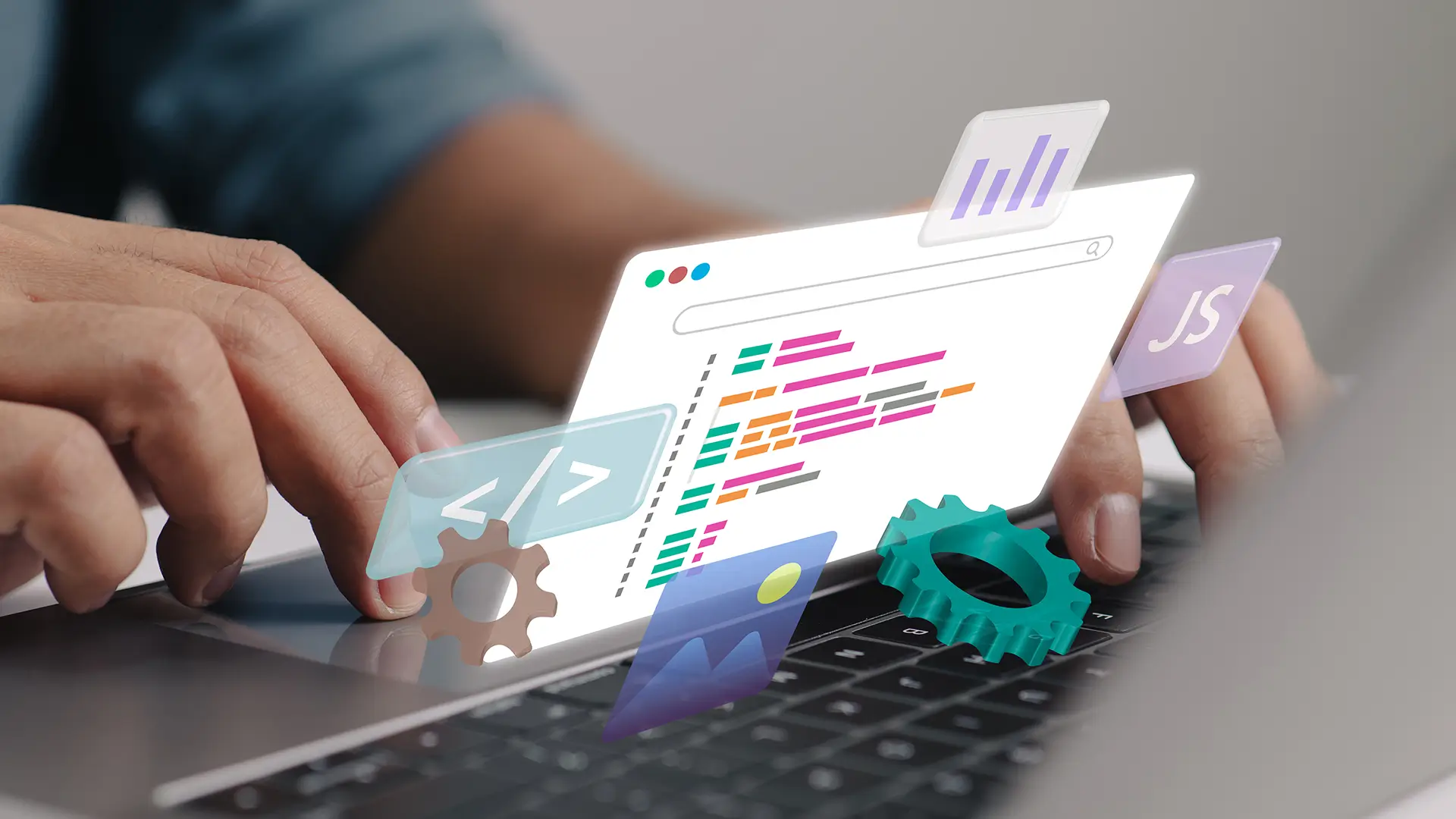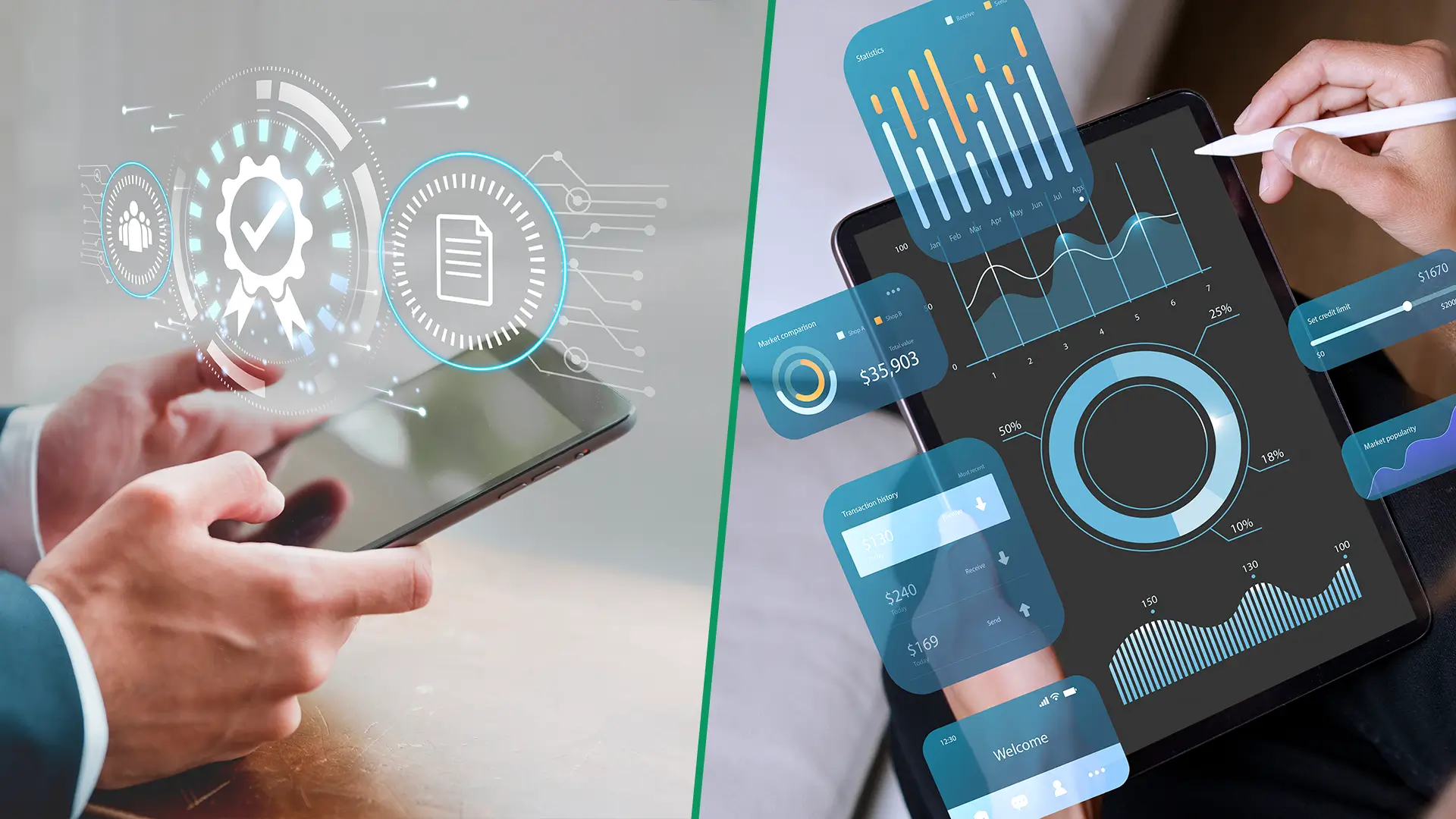AI-Powered Key Takeaways
Introduction
The retail industry is an ever-changing industry that always tries to keep consumers interested in its products and services in innovative and exclusive ways. With the current global financial situation, retail enterprises are making massive budget cuts and laying off critical human resources to tackle the tough economic situation. However, the drastic steps taken during the global economic downturn can impact retail enterprises' customer base, as the lack of the services of some crucial premium tools and human resources can lead to poor digital and customer experiences. So, the global economic downturn has opened new opportunities for automation testing in the retail industry. Automation testing with advanced technologies, like AI and data science, can help retail companies reduce production costs and the time-to-market. However, automated testing poses a lot of challenges to retail enterprises. Retail companies need to identify these challenges effectively to build and test retail applications quickly and seamlessly.
This blog highlights the top 8 challenges faced by retail enterprises while performing automation testing.
Main Automation Testing Challenges Faced by Retail Companies
1. Selection of the Right Automation Tool
Selecting the right test automation tool is critical for retail enterprises to achieve success with automation. As many test automation tools are available in the market, it has become extremely challenging for retail companies to select the right tool for them. The selection of test automation tools mainly depends on the testing requirements and the extent of automation needed for retail enterprises. The evaluation of the pros and cons of a certain tool is very crucial while selecting a test automation tool for retail application testing, as regardless of what testing methodology retail enterprises use, if they don’t have the right automation testing tool that matches their business requirement, then the automation testing will fail eventually.
Check out: Choosing the right tools for automated mobile app testing
2. Increased Time-to-Market Due to the Economic Downturn
In the retail industry, the time-to-market of software products and features plays a significant role, as the level of competition is very high. Employee shortages and budget constraints due to the recent economic downturn are also impacting the time-to-market of the products and services in the retail industry. Advanced automated testing with AI and data science capabilities can help retail companies balance the workforce and improve the time-to-market for their products.
Also check: AI In Testing Software - What Does the Future Hold?
3. Low Investment in Automation Testing Tools by Retail Companies
As automation testing involves a lot of tools, skilled resources, and infrastructure, a high initial investment is required. Even enterprises have to spend more on getting licensed tools to set up automation testing. Although some automation tools are open-source tools, the training and upskilling of existing employees on open-source tools will incur some costs for enterprises. The cost involved in the deployment, training, etc., of automation testing is the main challenge for retail enterprises. Also, with the onset of the global economic crisis, retail companies are skeptical about investing in premium automation tools. However, delivering a poor digital experience to their customers can cost them heavily.
Read: Role of Automation Testing in the Retail Industry
4. Lack of Collaboration and Communication
As communication and collaboration among teams are important for every testing process, they are also critical for automated software testing of retail applications. The lack of collaboration and communication can make automation testing difficult in the retail industry. Various teams are involved in the overall development of retail apps, like QA experts, developers, and project managers. It is crucial to have discussions among all these teams about the test cases that need to be automated. Having a strategic plan to cater to all teams’ requirements is a huge challenge for retail companies. Most companies try to overcome this challenge by having total transparency while identifying risks and errors in the initial stages.
5. Unrealistic Expectations About Automation Testing
Retail enterprises choose test automation tools by believing that they will solve all their testing-related issues, which is absolutely wrong. It is important for QA teams to understand that their expectations with automation testing should be realistic. Retail organizations having unrealistic expectations of test automation tools is also considered a challenge faced by enterprises. While performing testing, retail organizations need to be very clear about how much of their QA processes should be automated and the benefits of doing that.
Also read: 10 Ways to Accelerate the Software Testing Cycle
6. Multiple Integrations
Automated retail software testing enables QA teams to interact with different systems and ensure perfect synchronization seamlessly. Automated retail application testing requires third-party integrations that will help them accomplish a specific workflow. Third-party integrations are mainly used to manage tax calculations, fraud orders, and legacy gift cards by retail enterprises. With the use of third-party integrations, the number of test cases required to test applications will increase. This is a huge challenge for retail enterprises, as the time and money required for deploying automation testing will increase further.
7. Updating Data Related to Products and Services
Retail applications contain a list of products and services. Updating or changing the data of products and services is very important for retail companies to maintain customer loyalty. Most companies use test automation tools to evaluate this process. Wrong updates about products and services in retail applications can lead to customer dissatisfaction. This is also a critical challenge QA experts face while performing retail app automation testing. AI-based insights on these data with suggestions are a viable solution to overcome this challenge.
Test your mobile apps on real devices in 50+ locations worldwide. Learn more.
8. Data Reliance Issues
Data management is one of the most important challenges in automation retail testing. Changes to the data in one test execution can be the reason for another execution to fail. So, QA teams need to be careful while writing scripts for automation testing. Creating self-contained test scripts is an effective method to deal with this challenge. To execute error-free automation tests, the integration of an effective test automation tool into the QA environment is necessary.
How Can HeadSpin Help Retail Companies Overcome These Challenges?
A decrease in revenue can be a nightmare for retail enterprises during an economic crisis. In order to avoid the reduction in revenue, retail companies are forced to spend a large amount of money on resolving all digital experience issues faced by their customers, which is considered to be more than the money saved through layoffs and budget cuts. HeadSpin’s retail application testing solution can support retail enterprises in the journey of delivering flawless customer experiences and achieving improved business performance during the tough economic period. The HeadSpin Platform can help retail enterprises develop the capability to provide bespoke experiences to every customer. Let's check some of the critical features of HeadSpin’s retail application testing solution that can help retail companies overcome all test automation challenges.
1. Data Science Insights to Accelerate the Time-to-Market
HeadSpin’s retail application testing solution helps retail organizations gather data science insights about the performance of their applications. With these insights, retail companies can plan strategies and take necessary steps to enhance their apps' performance and user experience, thus helping the development teams accelerate the time-to-market of their products. The HeadSpin Platform will collect insights, such as issue cards, time series, session videos, and packet-level details, which will help both QA and development teams of retail organizations proactively identify issues and develop effective strategies to overcome them. With these actionable insights, retail enterprises can develop their products faster and gain an edge over their competitors.
Read: Dialing in faster app performance
2. Automation of User Journeys to Reduce Customer Experience Issues
HeadSpin's retail application testing solution can help retail enterprises to integrate test automation platforms, like Appium or Selenium, and automate various customer user journeys. Automating customer user journeys can help retail companies pinpoint all difficulties that users may face while using their apps and proactively resolve these errors. With this feature, retail companies can save a lot of money during the global economic recession, which is used to resolve issues raised by customers due to poor digital experiences.
Check: How to Achieve B2B Customer Experience Success With 5G?
3. CI/CD Integration to Perform Cost-Effective Automation Testing
In automated retail app testing, CI/CD integration is really crucial to execute all test cases seamlessly. HeadSpin's retail application testing solution supports all open test frameworks available in the market. Retail enterprises can check new builds, perform tests, and gather insights into the performance regression of apps with the HeadSpin Platform. With HeadSpin's retail application testing solution, retail enterprises can enhance their time to market and proactively identify all errors.
4. Global Testing to Reduce Infrastructure Costs
HeadSpin's retail application testing solution can enable retail companies remotely perform automation tests on real devices in 50+ locations worldwide with the help of a global device infrastructure. HeadSpin's global device infrastructure can help retail companies save an enormous amount of money, as it is very costly for retail companies to develop and maintain a real device infrastructure. It will also help retail enterprises coordinate different teams working independently from various parts of the world. Again, this factor also supports retail enterprises to reduce costs by performing multiple tasks related to product development in different geographical locations with supporting economic conditions. Thus, the money spent for implementing automation testing by retail companies can be reduced with the effective use of the HeadSpin Platform.
5. Testing of Various Zebra Devices
The HeadSpin Platform enables retail companies to test Zebra devices to enhance the user experience of these devices. Using HeadSpin’s retail app testing solution, enterprises in the retail industry can record and playback audio from scanners and printers associated with Zebra devices. The main features of Zebra devices that can be evaluated with the Platform are QR and barcode scanning, receipt printing, etc. In the case of device-to-device interaction of Zebra devices, the Platform helps retail companies test voice or actionable commands on Android and iOS devices and record how the controlled device responds.
Check out: Top 9 Tips to Improve Retail Mobile App Testing
Conclusion
Every organization in the retail industry is developing applications and online experiences to stay competitive in the market. Most retail companies are focused on delighting their customers with flawless digital experiences, no matter what device they are using to access it. To improve the user experience, it is important for retail enterprises to add new features and updates to their products and deliver them quickly and frequently to customers without compromising on quality. To do this, it is important for retail companies to adopt automation testing and overcome all challenges in the automation testing process.
To overcome all challenges in the automation testing of retail apps, use the best data-driven testing platform, HeadSpin, which can support retail enterprises to improve the app's quality, enhance customer loyalty, and accelerate time to market.
FAQs
Q1. What is retail accessibility testing?
Ans: Retail accessibility testing is a type of usability testing that involves users with all abilities and disabilities. The main focus of retail accessibility testing is to verify both usability and accessibility.
Q2. What is responsive testing of retail apps?
Ans: Responsive testing of retail apps is an important component that needs to be executed at every stage to ensure that it meets customers’ requirements. The primary goal of performing responsive testing on retail apps is to deliver a flawless user experience across different digital devices.
Q3. What is retail transactional testing?
Ans: Retail transaction testing is the QA method used to evaluate the complete integrity and success of online business transactions.


























.png)

























-1280X720-Final-2.jpg)






